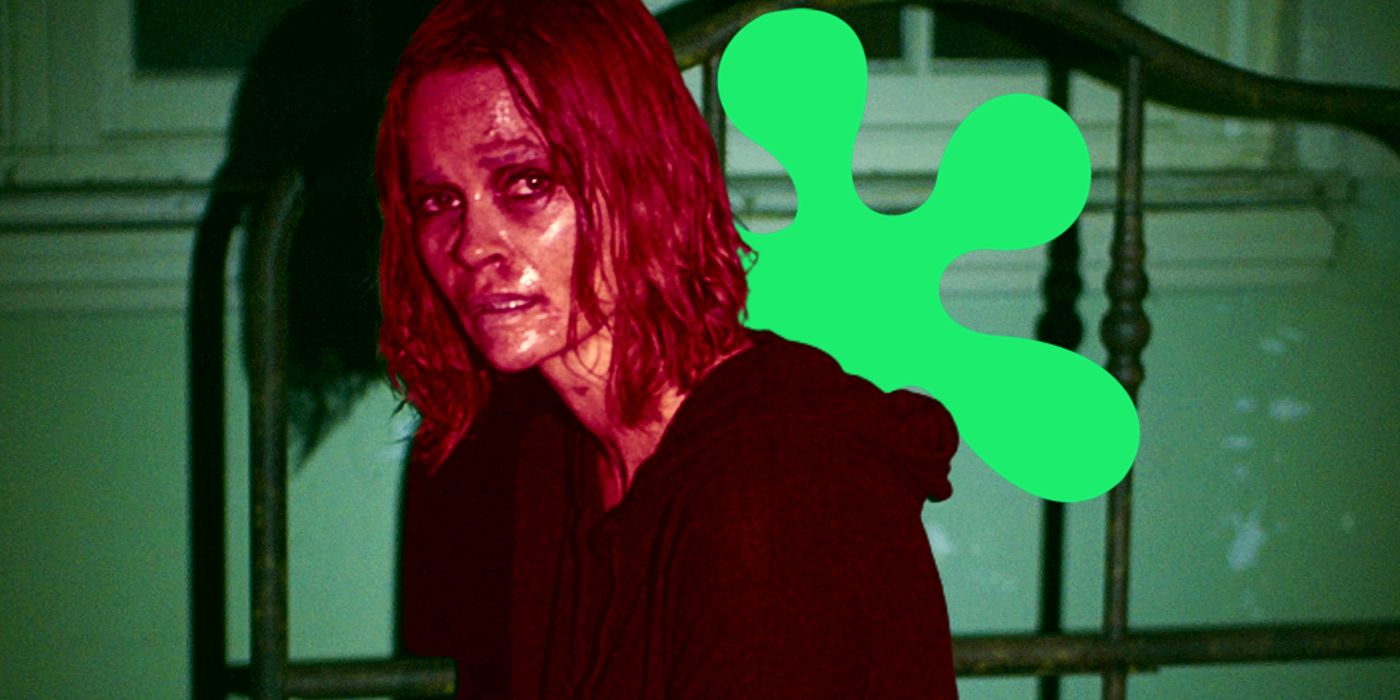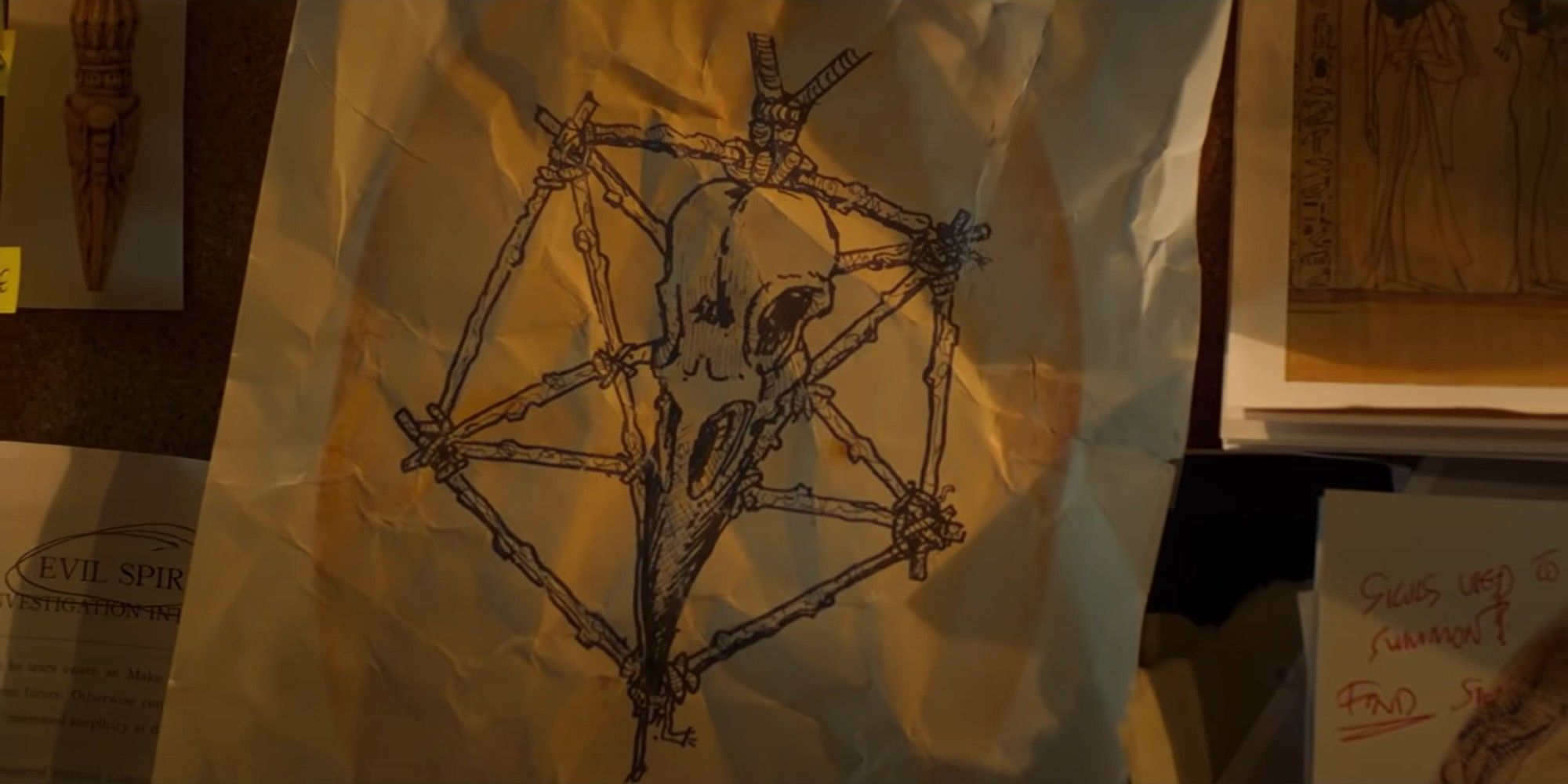
District 9 director Neil Blomkamp is back with Demonic, his first movie in years, so why are the reviews of this sci-fi horror effort so largely negative? Director Neil Blomkamp made a name for himself in 2009 with the release of the sci-fi mockumentary District 9. A sharp satire of xenophobia, District 9 combined sci-fi tropes and fast-paced action with a thoughtful story to great effect.
Since then, Blomkamp’s follow-up films Elysium and Chappie struggled to win back critical favor. Now his latest, Demonic, has received largely negative reviews (despite a handful of dissenters praising the premise’s potential). Demonic was filmed during the COVID-19 pandemic in 2020, but unlike lockdown-produced movies such as Host, In The Earth, and Locked Down, Demonic's plot does not touch on the ongoing health crisis.
Instead, the story of Demonic centers on Carly Pope’s Carly, a young woman estranged from her unhinged mother Angela. A mass murderer, Angela is suffering locked-in syndrome, prompting a shadowy company to invite Carly into her mother’s twisted mind via innovative simulation technology. The movie’s story is a clever spin on familiar possession, exorcism, and old sci-fi movie tropes, but Demonic has nonetheless failed to win over critics, with the movie on 15% on Rotten Tomatoes at the time of writing. The chief issues that reviewers came away from Demonic with were the movie’s lack of invention, its inability to effectively utilize an original premise, and the lack of seriously frightening scares to go with the plot. With Blomkamp’s Alien 5 canceled, this critical failure will be another blow for his once-promising career.
"Demonic is an incredibly cold film, and not just when it comes to on-camera issues like flat performances and dull dialogue, but in the filmmaking too. Perhaps the pandemic scared him away from his artistic instincts."
“The deeper that Blomkamp digs into his pixel-thin premise, the more glaring it becomes that “Demonic” lacks the genre fundamentals required to support any sort of broader mythology."
"Blomkamp seems to have run out of ideas, dragging out Carly’s ultimate confrontation with predictable beats devoid of any scares, dread, or suspense.
"At one point, a character in a coma is referred to as having Locked-In Syndrome, which means that she’s still aware of her surroundings but is totally unable to move. By the end of “Demonic,” you’ll know just how she feels."
"Blomkamp takes an unhurried approach to the setup that makes sense at first, but less so when the film keeps plodding ahead without picking up speed, rhythm or coherent logic… In the end, Demonic is all simulation, no real scares”

However, some reviewers were more mixed in their appraisals, with few offering outright kind words for Demonic but a handful saying that elements of the movie worked well in isolation. That said, a recurring theme in even these more forgiving reviews is that Blomkamp’s movie had unrealized potential, rather than that the movie is better than critics have given it credit for. Even Demonic’s kindest write-ups reserved their praise for the movie it could have been, rather than the flawed result that viewers received:
"Demonic skirts the line between being derivative and groundbreaking. The movie does inject its subject with fresh new ideas, but it never really transcends the trappings of the genre either. There are some memorable moments, and Carly Pope is convincingly terrified throughout… but this isn't Blomkamp's best work, nor will it likely become a cult classic."
"For all of its lackluster holy leanings, Demonic still achieves an air of abject horror, aided in no small part by Ola Strandh’s electro-exorcism score. The demon’s design is also consistently terrifying, whether it is enveloped in a neon-soaked backlight or morphing into unpredictable and increasingly abominable versions of itself."
Demonic’s failure may not come as a huge surprise after Elysium divided critics and feedback for Chappie was largely negative, but the reactions do not augur well for future releases filmed during the pandemic such as the upcoming Children of the Corn reboot. Few reviewers praised Blomkamp’s ability to work around lockdown restrictions while making the movie, meaning Demonic’s failure could spell the end of critics grading movies produced during the ongoing crisis on a sliding scale. With the industry returning to relative normality, the COVID-19 pandemic is no longer a deciding factor for a movie’s success or failure, which could well have further contributed to Demonic’s critical failure.
from ScreenRant - Feed https://ift.tt/3grwpxA

0 Comments